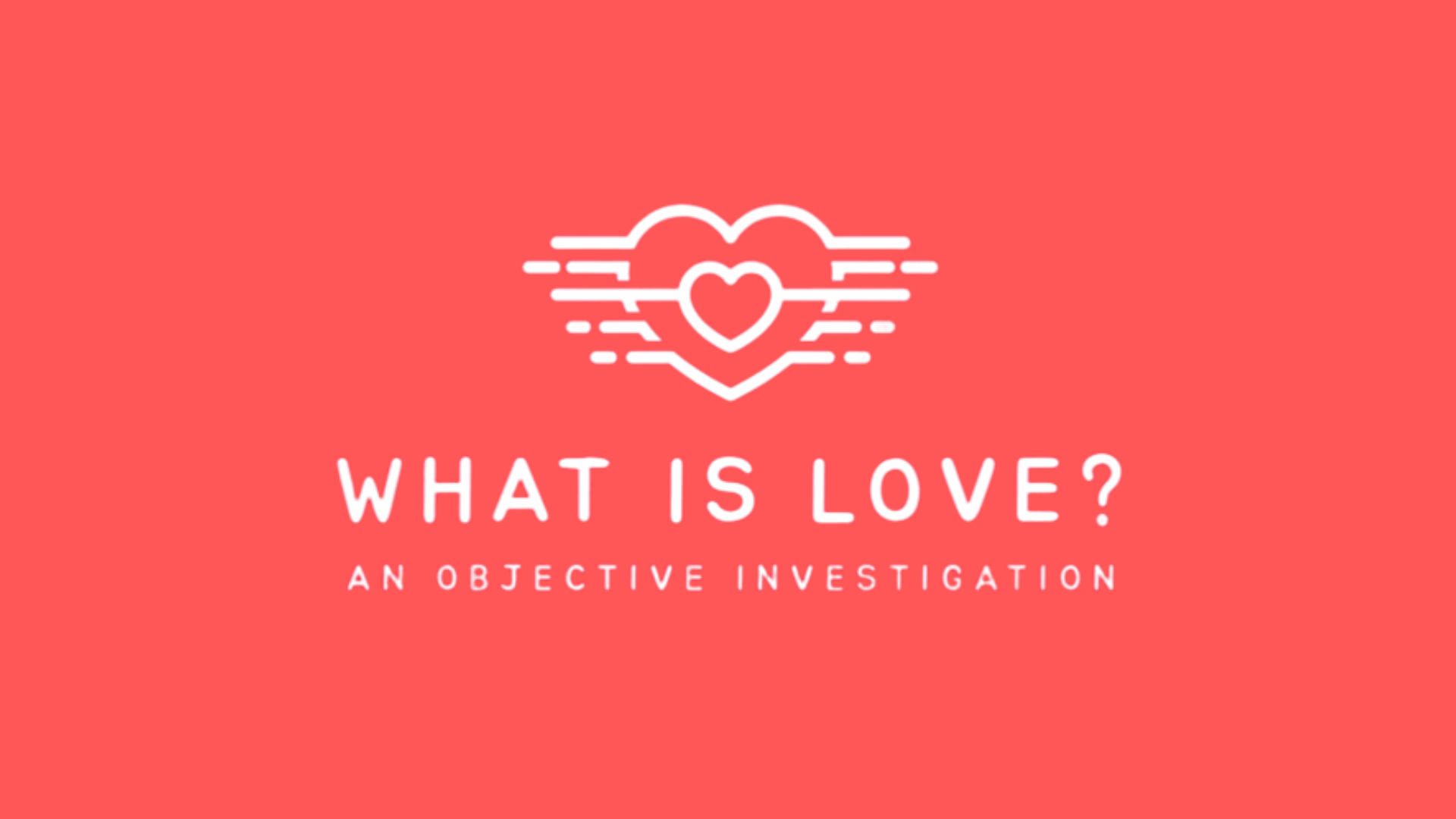
The word "love" is thrown around all the time without proper consideration to it's real or intended meaning. I aim to uncover it's mysteries and show both the ugly and beautiful sides to humanity's most infamous emotion.
Love Is Conditional
Positive Values
Like. Time. Happiness. Care. Trust. Interest. Understanding. Respect. Empathy. Appreciation. Regard. Fondness. Commitment. Free. Compatibility. Approval. Principles. Profit. History. Trying. Comfort.
I think there is 2 dominant kinds of love. True, Healthy, rational and selfish love and pseudo, unhealthy, irrational and selfless love.
Healthy love is conditional upon the positive values.
Unhealthy love is "unconditional" or based upon the negative values.
Love may be when you express all these positive values and have them returned in kind. It's a harmonisation of rational value exchange. The equal giving and receiving. It must be mutual and clear.
Love might be an emergent gestalt climactic culmination produced by the positive value cluster.
If a relation has the opposite of these values, then it probably isn't love.
If there is a higher degree of presence of a value, say above 51%, then the value could be considered an active value in the relationship.
When considering these aspects/values, think how you view/treat someone and how they view/treat you.
Like: Do they like me and my company? Want to communicate. Want to hear more. Like who I am, regardless of association. Do they like my personality, values, lifestyle choices? Do they like talking to me? Do they like being with me? Do they want/desire to relate?
Time. Do they have time for you, spend time with you? Reply to messages. Answer and return calls. Spend time on calls, in person. Frequently enough that's satisfactory?
Happiness: Are they happy to be with me, talk to me? Do they smile, laugh and appear to enjoy my company? Do they appear to enjoy our relationship?
Care: Demonstrable actions to help. Physically and mentally. Do they offer help and act on it? Do they show that they think about you when not around? Does their care extend beyond locality, across distance? Do they act invested in you, viewing you as a long term source of joy? Is there safety and protection demonstrated in action?
Trust: Reliability. Trustworthy. Predictability. Do they keep or break their word? Do you trust them to keep a secret. Do you trust them with your money? Do you trust them to act in your best interests? To not talk badly behind your back? To arrive on time, do what they say? Is their word their bond, or their toy? Can you predict their actions and how they will behave in a way which is beneficial?
Interest: Are they interested in my work, success, welfare, happiness and pain. Interested in my challenges, problems and solutions. My friendships, passions and hobbies. Do they give your their attention when communicating? Are they curious to learn more about you and what you've been doing and who you are and becoming?Can they focus on you without drifting? Do you capture their interest? Do they offer their undiluted presence? Can they concentrate on what you're saying, or do they cut you off and never let you finish?
Understanding: Does this person understand me? Do they seek to understand me? Do they speak and act like they know me, or don't? Do they show they care about really getting to know me? Do they seek to know you, or just assume they already do?
Respect: Does this person respect my ideas, opinions, solutions feelings, ambitions, position, time, problems, me? Are they honest with me? Or do they lie, manipulate, deceive or conceal important or relevant information?
Empathy: Does this person attempt to understand my perspective? Do they understand my pain, misery or suffering? Do they seek to ease my burdens or pain? Do they have compassion for me? Do they check in to ascertain my state of mind? Do they do this regularly? Do they consider my history and character before speaking or acting? Can they empathize, or try to, with me?
Appreciation: Do they thank me when I help them? When I provide value, do they show appreciation? Do they return favours without asking? Are they grateful of our relationship?
Regard: How do they think of me? How do you think of them? Would you want them to know how you think of them? Do they hold you in positive regard and speak highly of you to others? Or do they put you down behind your back?
Fondness: Do you have a feeling to be close and spend time with that person? A feeling of connection. A feeling to protect them from harm and support their happiness. A feeling that their welfare matters, not just to you, but in general. Do you feel that chest like feeling of affection and fondness?
Commitment: Do they stick around when the going gets tough. Do they leave or stay during tough times? Do they work through issues with you? If you fight, do they apologise and make up? Are they loyal to your relationship, provided it is is rational and profitable? Are they committed to mutual prosperity?
Free: Is the relationship freely chosen or maintained? Is there no pressure, expectation, obligation, history, coercion, fear or other factor which forces the relationship? Is it purely by choice of want, not of need.
Compatibility: Do you share common interests, values, ambitions, ideas, goals, attitudes, hobbies, likes and dislikes? Do you relate to each other? Share the same or similar thoughts or feelings? Are you actually compatible to be in a relation?
Approval: Do you approve of their friends or partners? Perspectives. Methods of thinking. Attitudes. Desires. Do you approve of how they spend their time, or do you believe they waste it? Do you approve of what they focus on and what they ignore? Do you approve of the way they look after themselves? Of the way they spend and earn money? Of their choices and positions.
Principles: Do you share some or many fundamental principles and outlooks on life? Gvt is bad. Vaccines are bad. Capitalism and sovereignty is good. Reliability and trust is good.
Profit: Do you both profit, gaining more than you lose from the relationship? Or does one side lose more than gain?
History: Is there many shared experiences (physical or non)? Do you have a history? Have you shown each other what you are like when times are good and bad? Has there been a relationship for a reasonable amount of time?
Trying: Do they try to work on these positive values? Even if they fail due to incompetence, brain damage, traumatic history, incapacity, etc..? Do they try to build or maintain the relationship?
Comfort: Do you feel comfortable and safe in speaking to them about important topics? Are you open to being vulnerable and supported by them, or do you fear they will hurt you or not understand if you open up? Do they negatively or positively judge you?
Vacuous & Anti Values
These vacuous/anti values can be considered irrational, unhealthy or pseudo forms of love, especially when claimed to be primary or independent references/reasons.
Attachment: Possessiveness. Objectification. Neediness. Desperation. Clingy. Obsessed. Seek to control. Manipulate. Deceive. More focused on the idea of the person then the person. Easy Transmutability of "love" to hate, anger, grief. Rumination. Addiction. Mindless irrationality and blindness. Violence. Craving. Longing. - This is an anti value that utterly warps ones ability to see, think and act clearly. Its a destructive force which causes harm to both parties.
Obligation/duty: Family. Arranged marriages. Duty to procreate for god, society, family, tradition. - This is an anti value, to be loved out of obligation, like someone is forced to love you, is an insult. A real punch in the heart.
Conditioning/indoctrination: Family. Good enough, societal expectations, family setups, desperation, religious conditioning. - This is an anti value. To be loved only because another is brainwashed, weak and desperate is an insult.
Selfless and unconditional: If they aren't getting anything from the love/relationship, except to tick the box of being selfless and unconditional. - Anti value. They are incapable of thought, consciousness or rationality, let alone love, yet they say they love you when they don't know the first thing about anything. This is a sickly situation of chosen mental disease.
Sacrificial/altruistic: When one claims to have sacrificed for you. That the relation is a sacrifice. That they put you before themselves. - This is an anti value. It translates as, you are less valuable then my work, life etc. that I had to sacrifice to have a relation with you. It's a great offense of how little they regard your worth. It's a denigration of your value, and their own. Sacrificial love is not love, its delusional, psychotic self mutilation.
Heavenly rewards/god appeasement: Only loving another to get entry to heaven and avoid torture, to appease a powerful torturer and be on their good side. Love Jesus or others. Buddhists. - Anti value. Ones love is coming from a place of panicked fear and desperate longing for positive sensation without contemplation. It's a form of hopeless powerlessness that drives one to feel love from this position. It's a repulsive act of cowardice.
Hormonal instincts and biological programming: Motherly instinct. Animalistic instinct. Men's desire to continue the lineage and survive vicariously in blood names. - If paired with positive values, this is acceptable. If not, then it's meaningless, a vacuous value. If someone only loves you because their biology tells them they should, this is pseudo love.
Relational titles: You're my brother, wife etc... - Vacuous value. It means nothing by itself. Why do you like bananas, because they're my favourite food.
Defaults to history: Childhood, good old days, we used to be in love. - Vacuous by itself without reasonable references/examples of history.
References that aren't reasons: Known each other for so long. Can't live without them. Life is better with them. They mean so much to me. They're my world. It's fate. I feel a connection with them. - Vacuous by itself.
Show little to no values or even anti values but says the words "I love you": Hollowed repetition or more social conditioning. Fear of reprimand. - It's an anti value for someone to say they love you when they clearly don't. Its a false pretense and disrespect, showing more than no care for you, but anti-care. They don't care about truth, but fitting into a box.


